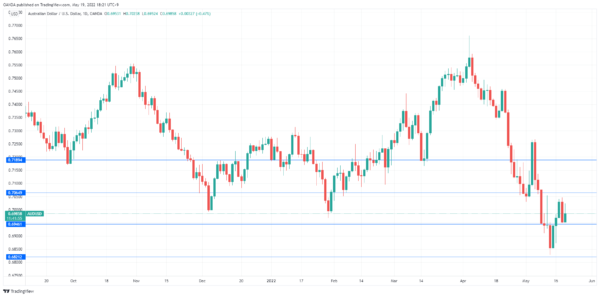Unemployment falls to record low
The Australian dollar has rebounded on Thursday. AUD/USD is trading at 0.6980 in the European session, up 0.38% on the day.
Australia’s April employment report was a further confirmation that the labour market remains tight. The economy created 4,000 new jobs, which is a marginal gain. However, there was an impressive gain in the number of full-time jobs (92.4 thousand), as part-time jobs declined (88.4 thousand). This move towards more full-time jobs should translate into stronger consumer spending. Even more importantly, the unemployment rate fell to a record low of 3.9%, down from 4.0%.
The employment data was solid but not spectacular, which means that the RBA will most likely deliver a modest 0.25% rate hike at the June meeting. Wage growth ticked higher to 2.4% in Q1, up from 2.3% prior. At one time, RBA Governor Lowe insisted that he would not raise rates until wage growth hit 3%, but he was forced to abandon this position as inflation has continued to accelerate. The Federal Reserve has adopted a front-load approach to tightening, which means higher rates earlier on in the tightening cycle. The RBA hasn’t given any signals that it will follow suit. Still, the RBA minutes indicated that a supersize 40-bps rate hike was considered at the May meeting, although policy makers ended up delivering a 25-bps increase. We’ll probably see another 25-bps hike in June, although a 40-bps move shouldn’t be completely discounted.
Australians will vote in a federal election on Saturday. Prime Minister Scott Morrison is in a tight race against Labour leader Anthony Albanese. Morrison can be expected to maintain fiscal and monetary policy, and if he wins this could give the Australian dollar a slight boost. A Labour government could raise taxes and spending, which would be bearish for the Australian dollar.
AUD/USD Technical
- AUD/USD faces resistance at 0.7064 and 0.7189
- There is support at 0.6946 and 0.6821

